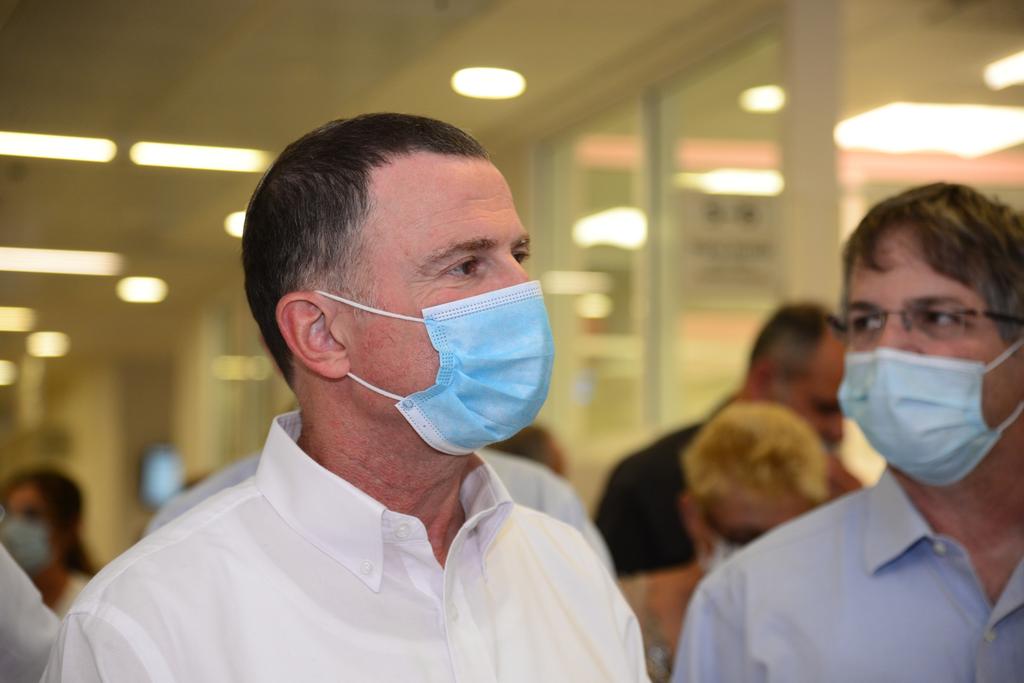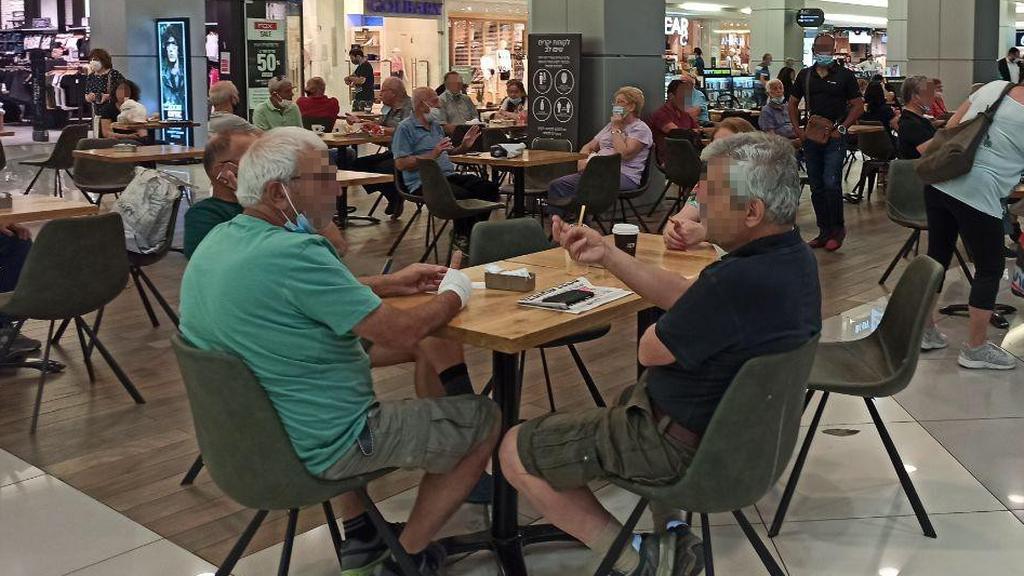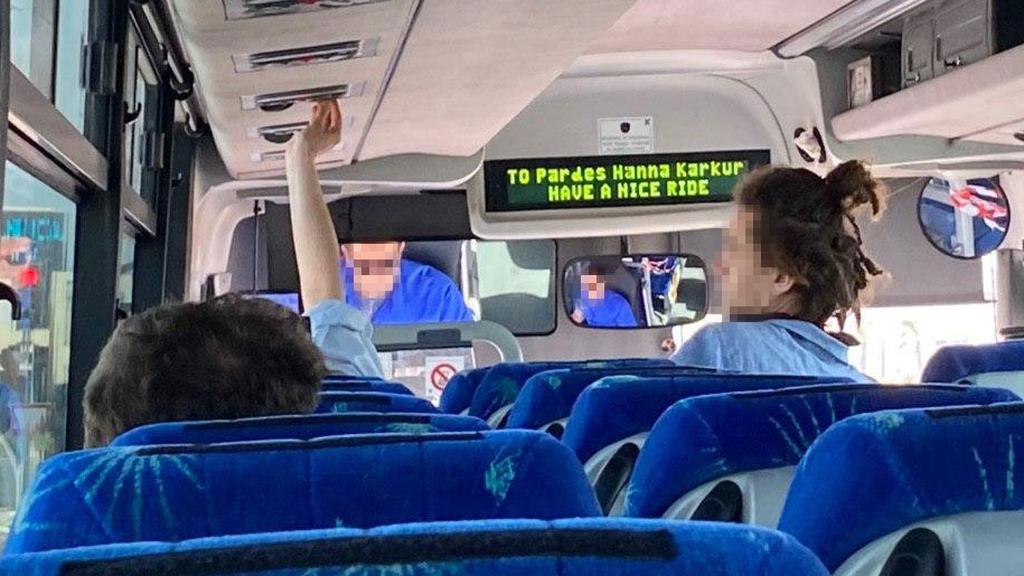Getting your Trinity Audio player ready...
With the economy and the education institutions reopening in Israel, the number of confirmed coronavirus cases has grown exponentially.
But public conduct has failed to reflect the growing concerns, as more and more people are seen without a mask in public spaces - in violation of health guidelines.
One such place is Hadar Mall in Jerusalem, which is visited by thousands of people every day. And while most visitors wear their masks correctly, many choose to wear them on their chin, rendering them effectively useless.
In malls and large enclosed areas, security personnel are instructed to make sure that visitors wear masks in accordance with the Health Ministry's guidelines.
In the smaller shops and closed recreation areas however, there are no security personnel to enforce regulations, prompting many visitors to freely disregard them.
Malls are subject to another issue: As it is not possible to require visitors to wear a mask while eating in the mall’s food complex, many find themselves confused on where they are required to wear a mask within the shopping center itself.
"These masks are uncomfortable and cumbersome. If the virus is spread by touch, then what does it matter if I wear a mask," says Manny, a resident of Jerusalem.
Yarden, a mall employee, adds: "The masks are suffocating, people do not replace them and recycle them for weeks. Their main advantage has long been lost."
Be’er Sheva’s Grand Canyon Mall is also a popular spot for visitors, and there, too, while most visitors wore masks some chose to place them on their chin. And inside the mall’s coffee houses, many chose to forgo masks all together.
“Outside, fewer people are walking around with a mask,” says a resident of Be'er Sheva.
"On the bus, maybe only a third [of passengers] have masks... and the drivers keep quiet," he says.
In Jerusalem’s Mahane Yehuda market, several police officers were stationed at the site to enforce regulations, fining passersby who did not wear a mask as required.
"I left the house quickly to buy some things at the market and forgot to take a mask,” says one shopper who was caught without face covering.
“I understand the importance of keeping to the guidelines, but in a situation where everything is so confusing and every two days the instructions change, I feel it is not justified to hand out fines.”
Another man who was cautioned by the police says he feels the fines are warranted.
“A policeman came up to me and asked me where my mask was. I told him he was completely right and that I had forgotten to bring it with me. The officer let me off with a warning. I think enforcement is important, and justified; it's for the health of everyone.”
In public transport, adhering and enforcing regulations has also become a troublesome affair.
On a bus from Rehovot to Rishon Lezion in central Israel, a group of boys who embarked without masks threatened to set fire to the vehicle when the driver told them they must wear face covering.
Nonetheless, many passengers have also said that drivers often fail to wear a mask as well.
It appears that the Transportation Ministry has not provided any protective equipment for drivers, claiming it was their own personal responsibility.
And while some public transport companies have provided masks for their employees, many are still required to provide their own protection.
"At first, the driver was wearing a mask,” says one passenger on a bus from Hadera to Tel Aviv. "But after a short time, he took it off and remained without it until he reached Olga junction where many passengers boarded. Then the mask went up and down intermittently.”
A passenger travelling from Tel Aviv to Haifa also says that she saw the driver without a mask. She says she tried to alert the uniformed policeman sitting next to her, but was ignored.
Health Minister Yuli Edelstein warned Tuesday that Israel would soon exceed 200 new daily coronavirus cases if the public continued to ignore health guidelines.
"The increase in coronavirus infections is becoming worrying,” he said while touring Soroka Medical Center in Be’er Sheva.
5 View gallery


Health Minister Yuli Edelstein at Soroka Medical Center in Be'er Sheva on Tuesday
(Photo: Herzl Yosef)
“We are approaching 200 new patients a day and we had 20 [a day] not long ago. If we don’t act, we’ll be in a very troubling situation,” he added.
Edelstein said the public's "obliviousness and disregard" of Health Ministry's guidelines have become the turning point in the spread of the pathogen.
“The right way [to combat the spread] is strict enforcement. People need to understand that there is no difference between enforcement of traffic laws and enforcement of coronavirus laws."
Edelstein compared enforcement in Paris, where those caught without a protective face mask can be fined 130 euros, and people adhere to the guidelines, and London, where a face mask is only a recommendation, so most of the public disregard the order.
"Not wearing a mask, not social distancing, not maintaining basic hygiene is equivalent to driving at 150 kph in an urban area,” he said.
Edelstein said the Health Ministry is aiming to reach 30,000 daily coronavirus tests. The highest number of tests so far was recorded last week, when more than 16,000 tests were conducted in one day.





